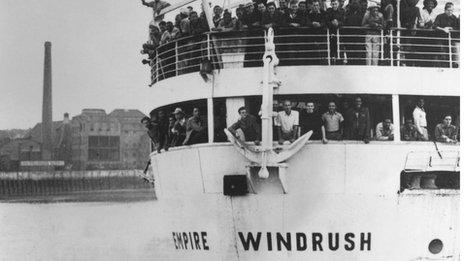'Living in fear' after being deported from the UK
- Published
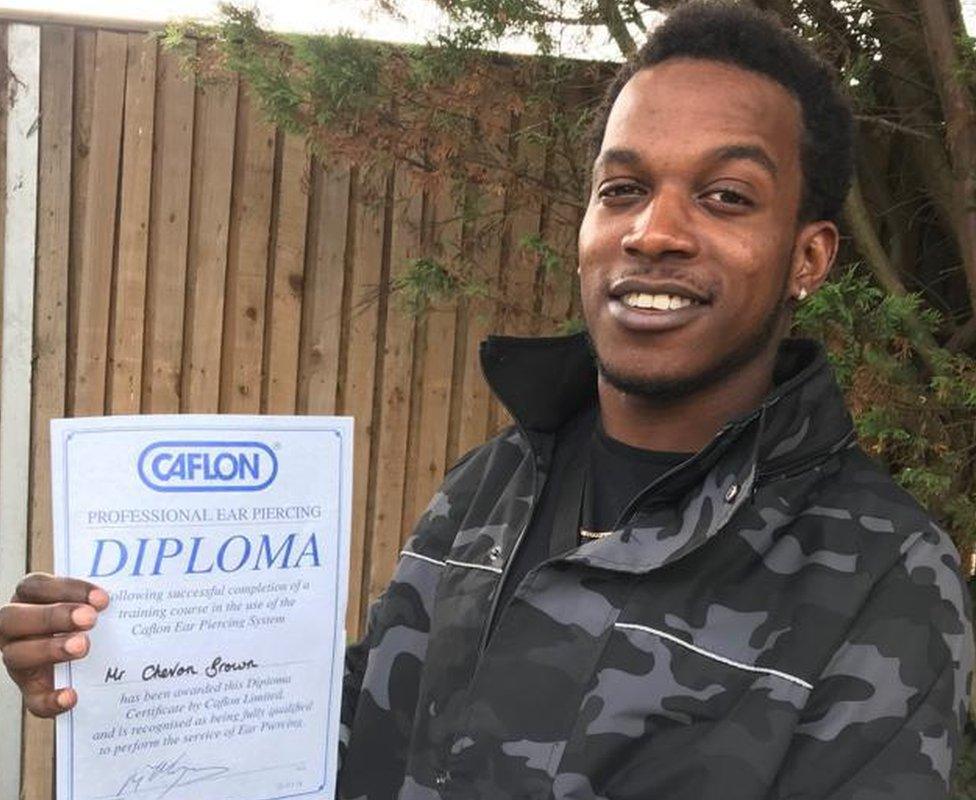
Chevon moved to the UK to be with his father when he was 14
Chevon Brown was 21 when he decided to take his car for a spin - despite the fact he was a learner driver with no insurance.
When he saw flashing blue lights in his rear view mirror, he says, he panicked. Instead of slowing down, he sped up, reaching speeds of 115mph.
The police chased him through the streets of Oxford for around five minutes. Chevon drove through red lights, on the wrong side of the road, and across front gardens, before he was arrested.
He was sentenced to 14 months in prison for dangerous driving and driving with no insurance.
The judge told him it had been a "terrifying catalogue of driving", external and anyone coming out of the flats where his car crossed the gardens "would not have stood a chance".
Chevon eventually served eight months. He hoped he would serve his time and go back to working as a barber in his father's shop.
He had no idea that his actions - which he puts down to "stupidity" - would result in him being removed from the UK, the place he calls home.
In February, Chevon was sent back to Jamaica, the country he left aged 14.

Chevon came to the UK on a Jamaican passport to live with his father, and had indefinite leave to remain.
But the government can deport foreign nationals if they have been sentenced to prison for at least 12 months. Nearly 45,800 foreign offenders have been deported since 2010.
Since returning to Jamaica, Chevon says he doesn't feel safe. "I am nervous walking down the street," he says. "Anything could happen - every day people die here."
According to UN data, Jamaica had a murder rate of 47 per 100,000, external inhabitants in 2016. In the UK, the rate was 1 per 100,000.
The Guardian, external recently reported that five men were killed in Jamaica after being deported from the UK during the past 14 months. British MP David Lammy responded by asking the government to "press pause" on all deportations to Jamaica., external
Chevon, now 23, says he often hears gunshots in Jamaica and occasionally sees people walking the streets brandishing knives.
He says he's scared, "no longer makes plans" for his life and often thinks about "why this happened" - at the same time blaming himself "every single day" for his mistakes.
"I miss working," he says. "I miss my family and I class England as my home. All my plans, everything I wanted to do with my life is over there."
He also says comments from Home Secretary Sajid Javid were unhelpful.
When Chevon was deported - on the first such flight since the Windrush scandal - Mr Javid said the deportees had committed "very serious" crimes.
Jamaican media reported the comments, which Chevon says made people "think I'm a murderer or a rapist... a menace to society".
Chevon said it is difficult to make friends or find work. His dad, Vance Brown - who says he is "worried sick" about his son - sends money to Chevon and the family he stays with, as well as providing for his other young children in the UK.
The government, which does not officially monitor returnees, says it only returns "those with no legal right to remain in the UK" - if they and the courts "deem it is safe to do so".
But immigration lawyer Jacqueline McKenzie says the government should revisit its rules. She refers to a Home Office review written by Stephen Shaw, external, a former prisons and probation ombudsman.
"For low-risk offenders, it seems entirely disproportionate to tear them away from their lives, families and friends in the UK, and send them to countries where they may not... have any ties," the review said.
He recommended that "the Home Office should no longer routinely seek to remove those who were born in the UK or have been brought up here from an early age".
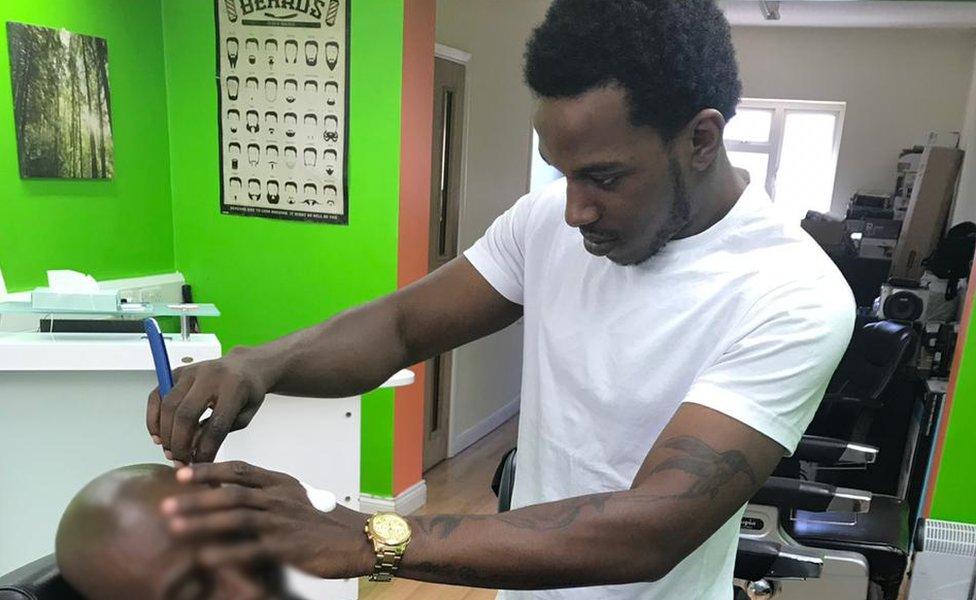
Chevon is a qualified barber but says he struggles to find work in Jamaica
Oswald Dawkins is president of the National Organization of Deported Migrants (NODM), a non-profit organisation which supports deportees upon arrival in Jamaica, and receives funding from the UK government., external
He said the UK should take more care to "look at each individual case" to consider the ties to both countries, as many deportees leave families and careers behind.
While he doesn't dispute that countries have the right to control their borders, he says: "The UK should not deport people en masse.
"There are persons who have returned without any strong family contact and for quite a number of them, all their families are in the UK - including children."
The Home Office said it works with "a number of non-governmental organisations" that provide support for returnees.
It added: "We are committed to ensuring safe and dignified returns and reintegration is a key part of that."
The Jamaican High Commissioner was contacted for comment.
- Published28 April 2018
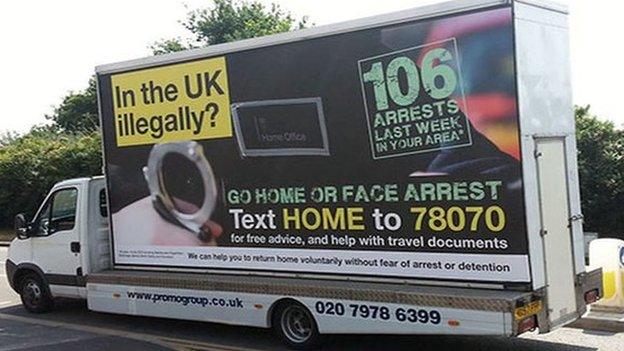
- Published26 April 2018
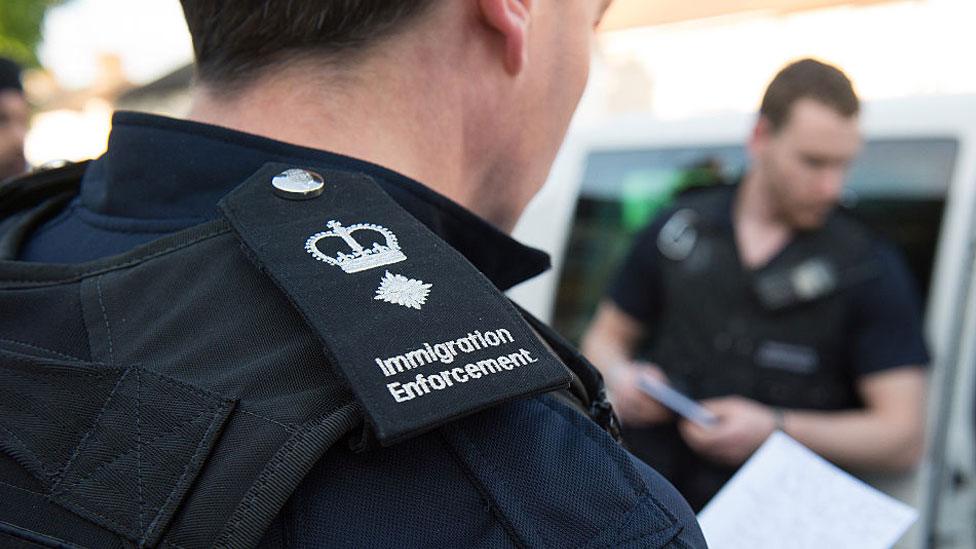
- Published6 February 2019
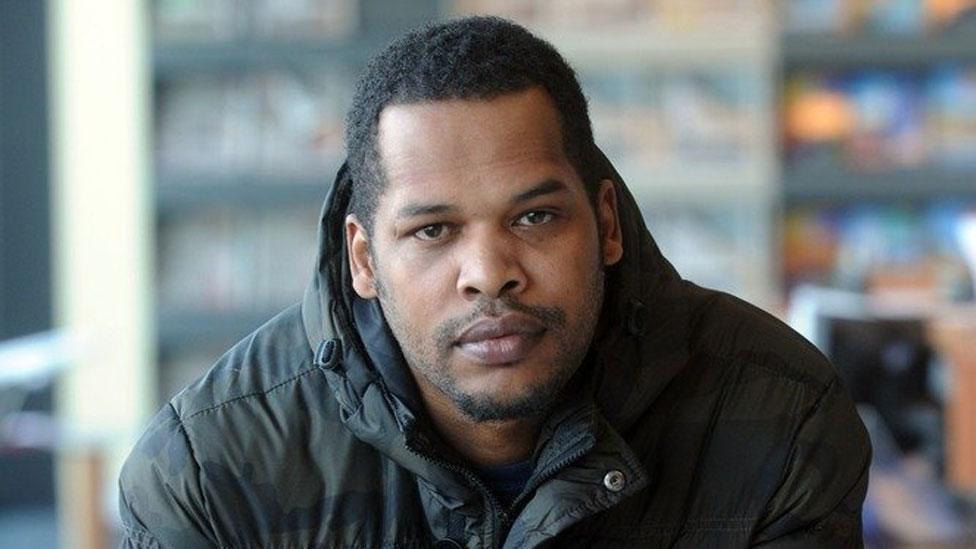
- Published18 April 2018
